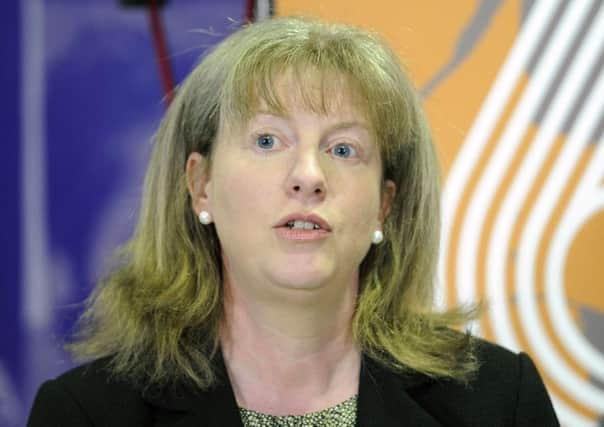NHS in Scotland has ‘major recruitment problem’


At the end of March this year, the NHS employed an overall total of 160,746 people - the equivalent of 137,603 full-time positions.
Official NHS data revealed there were the equivalent of 4,918.4 full-time consultants working in the NHS while for nursing and midwifery staff the total rose to 59,174.6.
Advertisement
Hide AdAdvertisement
Hide AdHealth Secretary Shona Robison said: “Under this government, NHS staff numbers have risen significantly, with record levels of consultants, nurses and midwives now delivering care for the people of Scotland.”
But both the British Medical Association (BMA), which represents doctors, and the Royal College of Nursing (RCN) raised concerns about the figures.
At the end of March there were 407.6 whole-time equivalent (WTE) consultant posts that were lying vacant, with 147.7 WTE posts having been empty for more than six months.
Vacancies in nursing and midwifery had also increased, the figures showed, with 1,981.5 WTE posts empty at the end of March, of which 472.7 had been empty for at least six months.
Dr Nikki Thompson, who chairs the BMA’s Scottish consultants committee, said: “The fact that official figures have shown the number of vacant consultant positions is still on the rise is extremely worrying.
“We also know that there are consultant vacancies that do not get picked up in official statistics, so the picture is very likely worse than these figures suggest.”
Dr Thompson added that having “jobs unfilled after months on end puts huge pressure on services as remaining consultants struggle to cover the gaps”.
She said: “Consultants in Scotland are utterly committed to their patients, and to the health service, but the vacancy problem is getting worse and we cannot continue like this.
Advertisement
Hide AdAdvertisement
Hide Ad“The Scottish Government must recognise that they have a major recruitment and retention problem, and take action to value the consultants we have, and attract those others that patients and services desperately need.”
Theresa Fyffe, the RCN’s director for Scotland, branded the figures “disturbing but entirely predictable”.
The use of agency nurses and midwives increased by 53.4 per cent over the past year, with the bill rising from £9.3 million to £16 million.
Ms Fyffe said: “While credit must be given to the Scottish Government and health boards for increasing the number of nurses they employ, we did warn that cuts to the nursing workforce should never have been made over the period 2009 to 2012.
“Coupled with a lack of supply due to the reduction in nursing students over the same period, we are now seeing a workforce that is overstretched and overburdened as health boards struggle to replace nurses who leave or retire and patient demand continues to rise.”
She added: “This situation is not only bad for patients, for staff - who are now increasingly likely to be off sick - it is bad for the public purse.
“The short-term cuts made to the workforce to save money mean that the amount of money that health boards are now having to spend on bank staff and, more worryingly, on expensive agency staff is going up.
“To say that there are more nurses in post now than when the SNP came to power would miss the bigger picture and does our NHS, its hardworking and dedicated staff and Scotland’s public a disservice.
Advertisement
Hide AdAdvertisement
Hide Ad“The boom-and-bust approach to Scotland’s nursing workforce simply isn’t working.”
Ms Robison said: “The recent rise in nursing and midwifery vacancies is due to the creation of new posts in health boards, mainly as a result of information from the workload and workforce planning tools.
“Several health boards have received additional investment to increase their nursing numbers and are in the process of recruiting these additional nurses.
“The spend on agency nurses has fallen under this Government and the £16 million spent in 2014/15 is down by almost 40 per cent from £26.47 million in 2005/06.
“We’re examining ways to support boards embed the reductions in their agency spend in recent years in light of a very small increase of 0.1 per cent of nursing shifts filled by agency staff in the last year.”
The Health Secretary added: “Protecting frontline health services is an absolute priority of this government and that’s why we have not only protected the NHS budget but increased it.
“Through this we are protecting our hard-working NHS staff by ensuring no compulsory redundancies in NHS Scotland, delivering the pay rise advocated by the independent pay review bodies and guaranteeing that all NHS staff are paid at least the living wage.
“This stands in contrast to the actions of the UK Government, who have failed to provide the same for staff in NHS England.
Advertisement
Hide AdAdvertisement
Hide Ad“We know our NHS faces many pressures and is treating more patients, with more complex illnesses, than ever before. Despite these pressures, the fantastic staff working in the NHS continue to deliver high-quality care.”